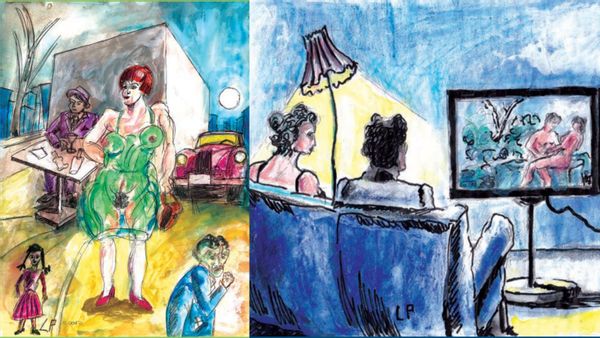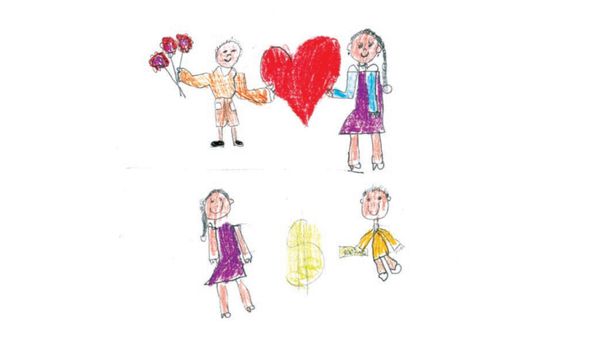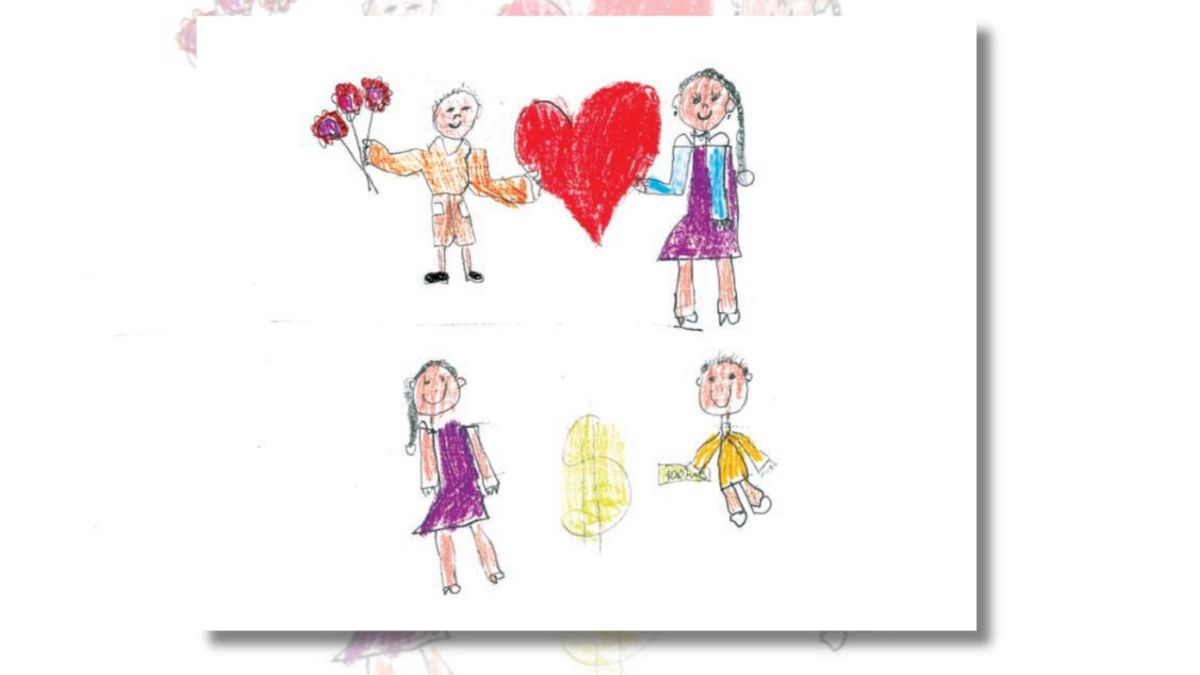Before Sept. 26, 2023, the Berlin government's official website listed a children's book titled "Rosi sucht Geld" as a recommended resource. The book is about sex work, features hand-drawn illustrations, and says its intended audience is aged 6 to 12.
However, Berlin officials didn't "offer" the text to children, nor make it available to the public in anyway. Also, as of Sept. 26, 2023, the book no longer appeared on the site, and the government issued a statement stressing that adults could decide whether to show children the book.
In September 2023, a rumor spread online that the Berlin government was offering children a "pro-prostitution picture book" to teach them about sex work.
The Berlin government is offering children a pro-prostitution picture book intended to teach them that the sex trade is safe and enjoyable.
"Rosie Needs Money," which is written from the perspective of a little girl, is targeted at children aged 6-12.https://t.co/r5FlkE0kGW
— REDUXX (@ReduxxMag) September 25, 2023
The claim picked up steam after it was mentioned on the feminist German-language podcast, "Die Podcastin," featuring Isabel Rohner and Regula Staempfli.
The children's book about sex work exists, and it's true that the official website for Berlin's government once listed it as a recommended resource. However, Berlin officials didn't "offer" the text to children, nor make it available to the public in anyway. Also, as of this writing, the book no longer appeared on the Berlin government's website.
For those reasons, we have rated this claim a "Mixture" of accurate and misleading information.
The book was written in German and titled "Rosi sucht Geld," which translates to "Rosi Looks For Money" or "Rosi Needs Money" in English. It was published in 2013 as part of a city-sponsored initiative to crowdsource ideas from the public on how to teach children about sex work, according to the Berlin government. The contents of the book are for children aged 6 to 12, according to the book's description.
That said, in its opening pages, "Rosi sucht Geld" raises the question, "How do I tell my child?" That question implies the text is for parents seeking help teaching children about sex work, which is legal in Germany.
In late September 2023, after the podcast's mention of the book and social media attention that followed, the Berlin government issued a statement stressing parents' agency in showing the book to children. That statement read (translated from German to English):
There has been no response to the book for 10 years, even though it was actively promoted after its publication. It was issued exclusively to adults, who decided for themselves how and whether they wanted to use it. The book attempts to provide a guide for parents who are faced with the question of how to explain to their children why there are sex workers on Kurfürstenstrasse (and elsewhere in the city). Families who live in the Kurfürstenkiez asked the Mitte district office what they should say to their children. Many felt overwhelmed by this.
Therefore, a local working group decided in 2012 to develop the book as part of a funding project. For this purpose, an artist was recruited who knew the area well and had experience in artistic work with children.
Retrospectively, however, it must be stated that this handout did not achieve any of the expected results and adults did not use the book. Therefore it will be removed from the website, the website will be revised and aligned with today's needs.
As of Sept. 26, 2023, the Berlin government's website no longer listed the book. However, via Wayback Machine (an internet archiving site), we found the book was displayed on the website as far bask as 2017, and as recently as Sept. 23, 2023.
It's unclear when, exactly, the book was removed the site, and if, or to what extent, the attention on the book in 2023 played a role in its removal. We reached out to the Berlin Press Office to inquire about the government's rationale for removing "Rosi sucht Geld" from its site, and the office referred us to the above-mentioned, publicly available statement.
The Contents of "Rosi sucht Geld"
Snopes obtained a copy of "Rosi sucht Geld." The book begins (all transcriptions from the book were translated from German to English):
Pictures and thoughts about sex work
A community book with pictures and texts created by people from Tiergarten-Süd 2011 – 2012 in the "Social City" project: How do I tell my child?
The book tells a story of two child friends, Maryam and Martin, and Rosi, who is a a sex worker. Maryam lives on Kurfürstenstrasse, a street in Berlin famous for sex work:
When I look out the window at home, I see the square and women like Rosi on the street. They're looking for money, my mom always says. But they don't seem to find much money. Their clothes are not enough. Their breasts and legs must freeze in winter.
The book continues by explaining Rosi's work routine:
Rosi is working again.
She is also one of the women on the street. She calls it work when she leaves in a car. Always men are sitting in the car. Some in a Mercedes, some in a Polo. Some have gray suits, others have jeans.

(Rosi sucht Geld book)
Then, the characters Martin and Maryam have this conversation:
But today we decided to finally ask Rosi what she does with men. Actually, we already know. They give her money and want to make love. 'But is that 'love'?' I ask Martin.
'It's different from what mom and dad do. Mom makes love with dad, but men don't make love with Rosi, they make sex like on TV.'
'But Martin, what is sex? Something like 'making love' without love is nonsense.'
'I don't know, Maryam. Here comes Rosi. I'll ask her right away.'

(Rosi sucht Geld book)
Later on, Rosi explains to the children her perspective on the difference between "love" and "sex":
'You want to know what this has to do with love and sex? What do you think? Everyone acts as if love and sex were always the same. Men say this to me and to their wives at home. But sometimes love is gone. Or the sex. That's why my customers just want to talk to me and they give me money in return.'
"'What can I tell you? Most of the time it's like this: men want to put their penis in my vagina. A few times in and a few times out - and you're done. There's nothing more to it than that.'
Then, Maryam and Martin discover that Rosi left Kurfürstenstrasse to return to her home in Bulgaria. That's where her children live with their grandma. She did sex work in Berlin to afford their food.
After that story about Rosi, the book shares seemingly real statements from Berlin residents and sex workers, such as:
'I have no direct connection to prostitution – I'm more of an outsider. It seems like a different world to me. I don't want to be in a situation where I have to sell my body for money.'

